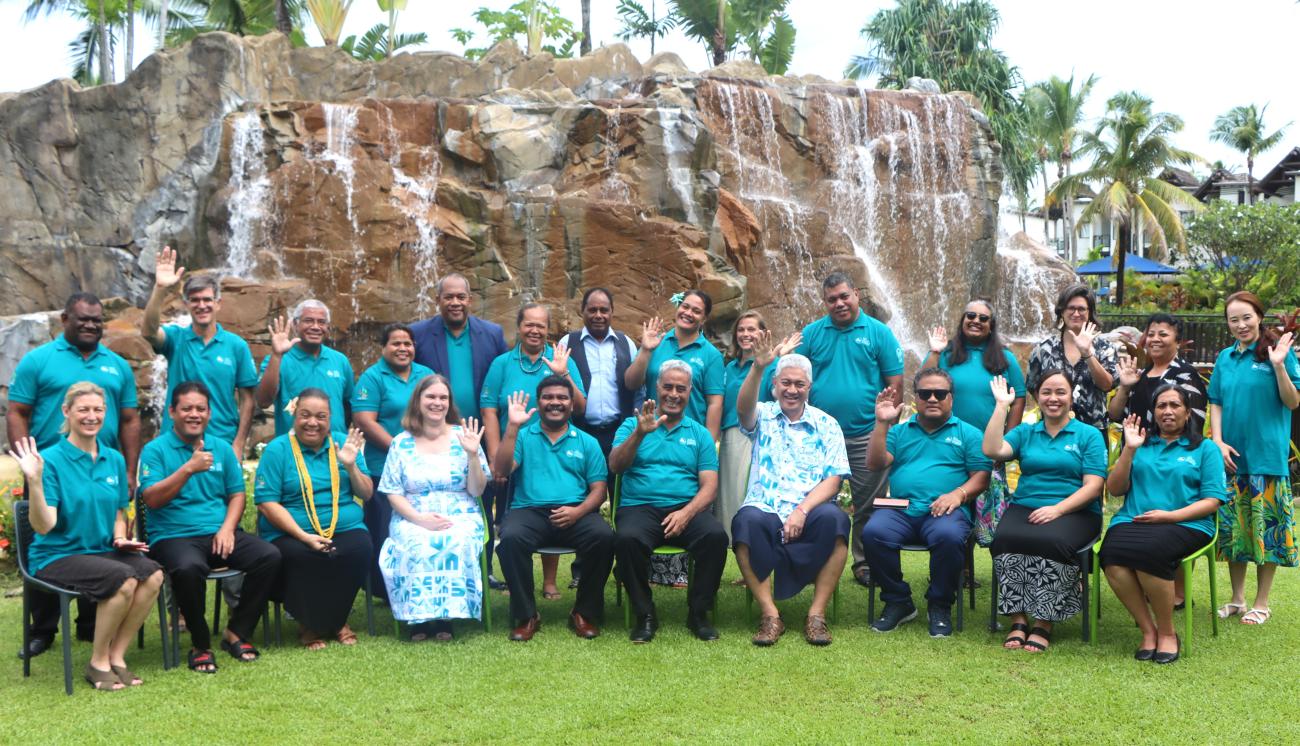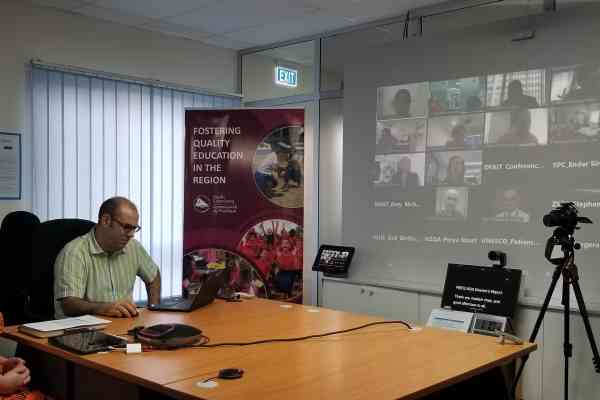(contenu disponible en anglais uniquement)
Pacific’s education quality board endorses public sharing of country specific information and new areas of work identified by the region
The ninth meeting of the Pacific Board for Education Quality (PBEQ) took place from 20th to 22nd March 2024 and focussed on enhancing the quality of education at all levels across the region by making country specific information that were generated by the Pacific Community (SPC) accessible to the Pacific people.
Traditionally, country specific information compiled by SPC were shared only with the ministries of education and were password protected due to the sensitivities around the identity of the students, teachers and schools that participated in the regional assessments.
The Pacific Islands Literacy and Numeracy Assessment (PILNA) is one of the assessments administered by SPC across 15 Pacific Island countries that generates country specific information and reports with restricted assess only provided to the ministry officials.
Through the enactment of the Conference of Pacific Education Ministers’ decision endorsed by the PBEQ, the 15 PILNA country reports and the Small Island States report generated by PILNA will be shared publicly on SPC’s digital platforms while ensuring the datasets used to compile the reports remained with the countries and were subject to a set of guidelines with conditions on the usage of the data.
The datasets including personal information about the students, teachers and schools that participated in PILNA will be protected to ensure individual privacy and to avoid comparisons, which is not the goal for PILNA.
Torika Taoi, SPC’s Team Leader for the Large Scale Assessment Team explained that:
“The public sharing of PILNA country reports will allow more awareness of the findings of assessment at all levels including ministries, school leaders, teachers, parents/guardians, donor/partner agencies, researchers and the general public. Through this move, we will be able to include these stakeholders in the interventions that we have planned for the region to improve the literacy and numeracy skills of the Pacific’s children”.
This agreement will also include the release of the Pacific Assessment for Lower Secondary (PALS) reports ensuring a broad understanding of the areas of strength and areas of growth needed across the region.
While noting the progress of tertiary education in the region, the PBEQ voted and endorsed governance groups under the newly signed Pacific Qualifications Recognition Project.
SPC and the New Zealand Qualifications Authority (NZQA) are working together to deliver this New Zealand Ministry of Foreign Affairs and Trade (MFAT) funded project that will support Pacific countries that are party to the PACER Plus aid and trade agreement and to strengthen the Pacific Qualifications Framework (PQF) to support improved recognition of Pacific qualifications.
Rajendra Prasad, Team Leader of SPC’s Qualifications team highlighted that: “The governance group is an essential element of the project as it will provide oversight, monitoring and direction on the project. The governance group will also link up the activities and outcome of the project with national priorities and seek a higher level of support and buy in of the project”.
The PBEQ also provided an opportunity to the Australian Department of Foreign Affairs and Trade (DFAT) colleagues and SPC to strengthen their partnership by signing the grant amendment outlining funding for the second phase of the partnership that will conclude in 2027.
Natasha Verma, DFAT’s Senior Programme Manager – Regional Education explained that: “One of the key regional partnerships that we are very proud of is with SPC’s Educational Quality and Assessment Programme (EQAP). This partnership was designed as a 10-year trilateral investment with SPC and New Zealand. The new partnership is focused on supporting SPC-EQAP’s Business Plan to provide regional goods including providing products and services, carrying out the Pacific Islands Literacy and Numeracy Assessment (PILNA) and developing knowledge products such as the Status of Pacific Education Report”.
The outcomes of the PBEQ will be tabled at SPC’s CRGA meeting later this year.
About PBEQ:
The Pacific Board for Education Quality (PBEQ) is governed by Pacific countries. It is a is a subcommittee of the region’s largest technical and scientific organisation, the Pacific Community (SPC) as part of its Committee of Representatives of Governments and Administrations (CRGA) that governs SPC's Educational Quality and Assessment Programme’s work through annual convenings.


